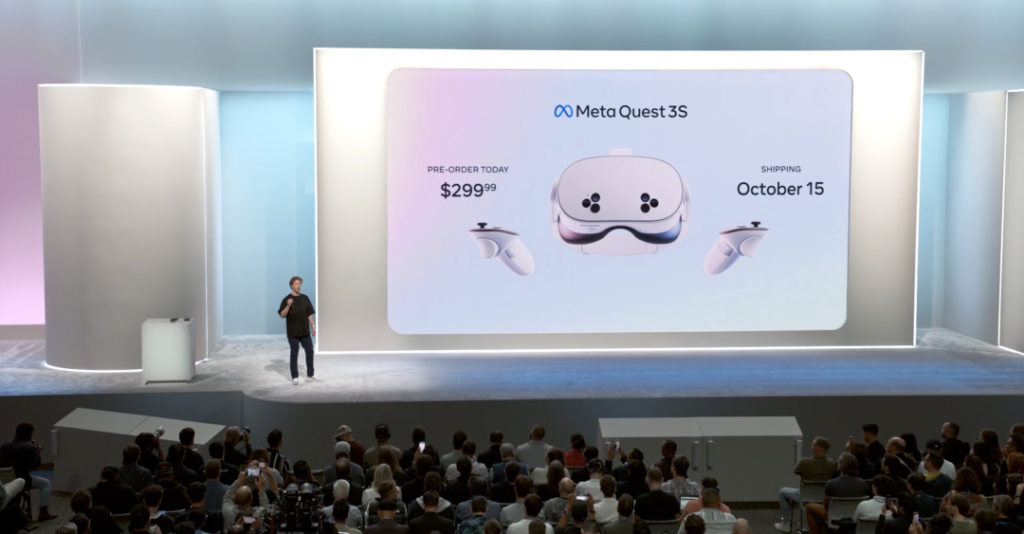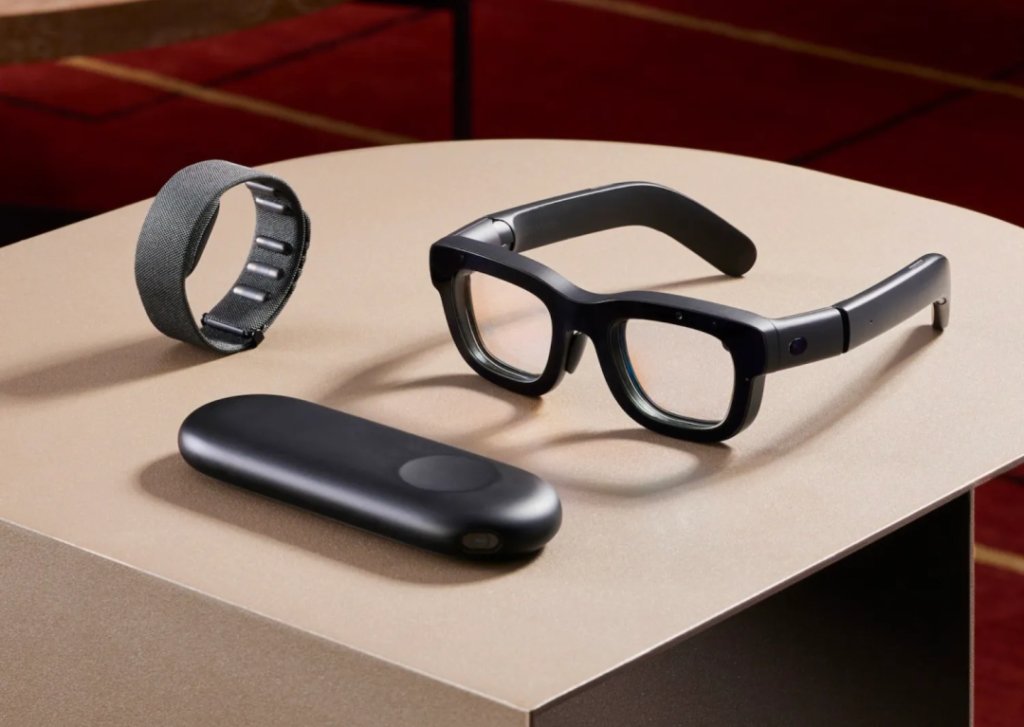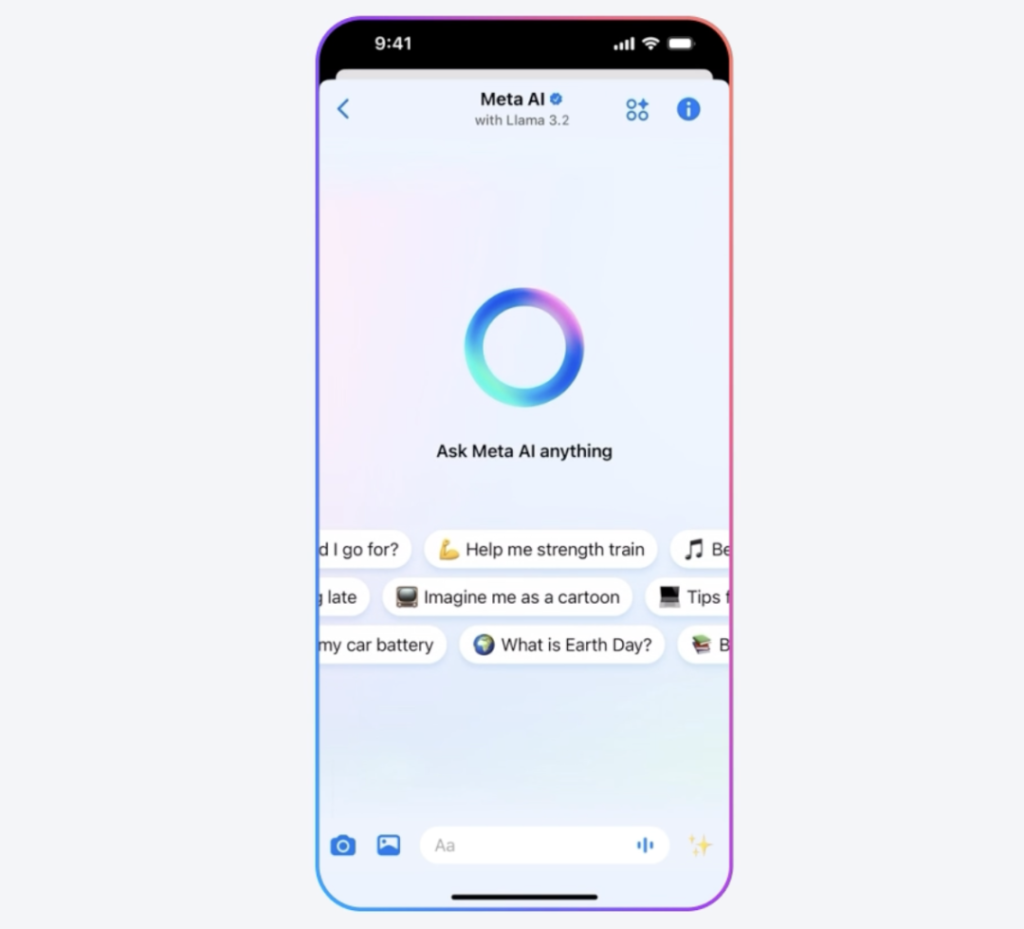“Where is Zuckerberg?” This was the most frequently asked question in the comments on various live streaming platforms after the Meta Connect 2024 keynote had still not begun ten minutes past its scheduled time.
Initially set to start at 10 AM Pacific Time (1 AM Beijing Time on September 26), the keynote eventually began 15 minutes later when Meta’s founder, Mark Zuckerberg, jogged onto the stage.
This made it seem like even Zuckerberg, like a regular worker during rush hour, had run late. Fortunately, the new products announced were significant enough to make up for the global audience’s lost 15 minutes of their lives: In addition to the more affordable Quest 3S series, there were also Meta AI with Llama 3.2 and a glimpse into the future of AR glasses with the Orion prototype.
With the most popular “AI glasses,” the most advanced AR glasses, and the most widely used open-source AI, it’s no wonder that Zuckerberg’s recent interviews give off an air of “I’m frighteningly strong.” After years of hard work, the metaverse has finally produced the AR bloom with Orion, and the Llama 3.2 model continues to be open-source.
Indeed, Zuckerberg has the confidence to say: Meta is a company that uses technology to realize visions.
1. Quest 3S: The Next Quest to Sell Millions of Units
Perhaps aware that his late arrival had angered people around the world, Zuckerberg wasted no time after taking the stage. He quickly got to the point and announced the Meta Quest 3S’s price within the first three minutes of the keynote—quite a refreshing move compared to recent hardware launch events. As the product Meta has pinned high hopes on to help push Quest’s global shipments beyond tens of millions of units, the Meta Quest 3S is priced at $299 for the 128GB version and $399 for the 256GB version, available from October 15. Positioned as an entry-level device, the 3S maintains the same main hardware specifications as the Quest 3, including the chip, but sacrifices body material and display quality, reducing resolution from 4K to 2K (with a single-eye resolution of 1832*1920 for the Quest 3S) in exchange for a lower price.

Of course, as is customary with Meta’s Quest product launches, a host of new games and software will be landing and adapting to the system. Notably, the Quest 3 series now natively supports the extension of Windows 11 devices to multiple displays. Additionally, the much-anticipated Batman IP mixed reality game Arkham Shadows is included as a bonus, and every user who purchases the Quest 3S/3 before April 2025 can add it to their library for free. After the release of the Quest 3S, only the 512GB version of the Quest 3 will remain, with its price dropping from $649 to $499.

2. Meta Ray-Ban: New Design, New Features
Before unveiling the real surprise, Zuckerberg teased the audience by reviewing the past year’s achievements of the Meta Ray-Ban series. As the first AR glasses to achieve a phenomenal level of success with over a million units shipped, Meta Ray-Ban is critical to Meta’s strategy. This year’s updates include a new app called Be My Eyes, which turns the glasses into a “seeing-eye” for visually impaired users by uploading what the glasses capture in real-time, allowing sighted volunteers to help users perceive their surroundings.

Meta Ray-Ban glasses now also come equipped with more multimodal Meta AI features, such as automatically recognizing license plates to help users remember where they parked, and sending automatic notifications to family members three hours after a flight lands. Additionally, using Meta Ray-Ban’s multimodal capabilities, Meta AI can recognize landmarks, helping users quickly navigate a new neighborhood or city, like generating a tourist itinerary. The glasses now support real-time language translation, currently available in English, Spanish, French, and Italian, with more languages to be added later. A limited-edition Meta Ray-Ban with a transparent frame design was also unveiled, adding a more futuristic look to the stylish aviator series.

3. Orion: The “Next-Gen AR Interaction Experience”
However, as we all know, Meta Ray-Ban isn’t a true AR headset since it lacks display capabilities. Some have argued that the success of Meta Ray-Ban does little to advance AR (particularly display technology) and may even stifle the growth of AR startups. But today’s announcement of the Orion AR glasses could silence those critics entirely, as it offers a glimpse into the “next-generation AR interaction experience.”

Orion uses a ULED + micro projector setup, not only supporting full-color display content but also integrating near-Vision Pro or Quest-level spatial positioning capabilities into a much lighter form factor. Orion boasts features like hand gesture recognition, gaze tracking, and a wristband for detecting subtle interactions like rubbing your thumb, all in a device that weighs just 100 grams. With these advancements, Meta is redefining the AR glasses landscape.
4. Meta AI: 500 Million Monthly Active Users
After discussing hardware, Zuckerberg moved on to AI. He revealed that Meta AI, integrated into Facebook and Instagram, now has 500 million monthly active users and could become the most widely used AI assistant globally by the end of the year. Meta is also pushing further into multimodal AI, with voice interaction capabilities and tools like image editing through natural language commands, automatic video dubbing, and real-time language translation for Reels videos.

5. Llama 3.2: Continuing the Open-Source Legacy
Meta also introduced the Llama 3.2 series models, featuring lightweight models for mobile devices and open-sourced for community use. Zuckerberg emphasized Meta’s commitment to open-source, contrasting it with proprietary models from competitors like OpenAI.

With the Orion launch showcasing AR’s potential and the continued development of open-source AI, Meta reasserted its leadership in AR and AI innovation at this year’s Meta Connect.
Let me know if you need any further revisions or adjustments!





Hi, this is a comment.
To get started with moderating, editing, and deleting comments, please visit the Comments screen in the dashboard.
Commenter avatars come from Gravatar.